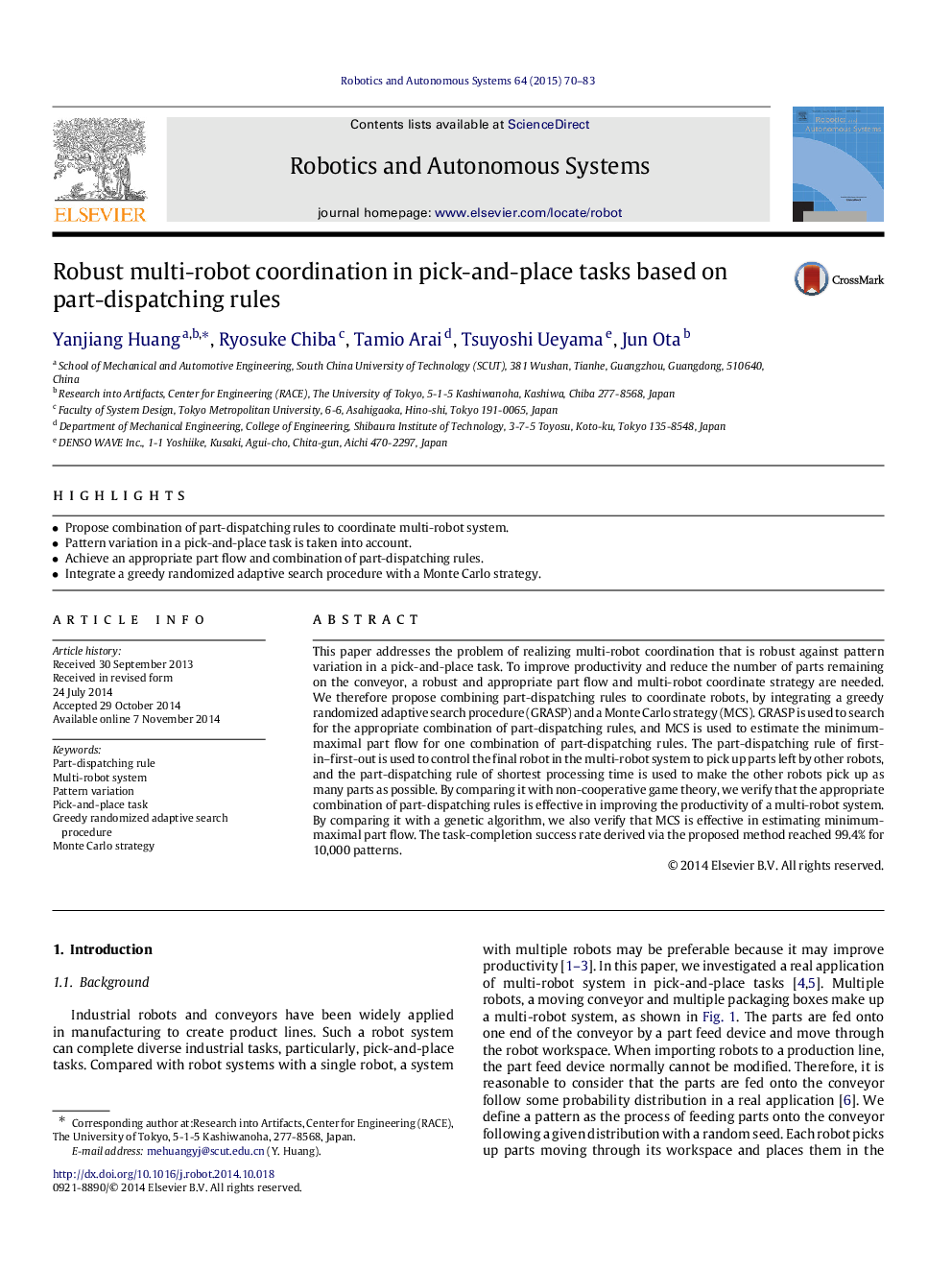| Article ID | Journal | Published Year | Pages | File Type |
|---|---|---|---|---|
| 413368 | Robotics and Autonomous Systems | 2015 | 14 Pages |
•Propose combination of part-dispatching rules to coordinate multi-robot system.•Pattern variation in a pick-and-place task is taken into account.•Achieve an appropriate part flow and combination of part-dispatching rules.•Integrate a greedy randomized adaptive search procedure with a Monte Carlo strategy.
This paper addresses the problem of realizing multi-robot coordination that is robust against pattern variation in a pick-and-place task. To improve productivity and reduce the number of parts remaining on the conveyor, a robust and appropriate part flow and multi-robot coordinate strategy are needed. We therefore propose combining part-dispatching rules to coordinate robots, by integrating a greedy randomized adaptive search procedure (GRASP) and a Monte Carlo strategy (MCS). GRASP is used to search for the appropriate combination of part-dispatching rules, and MCS is used to estimate the minimum-maximal part flow for one combination of part-dispatching rules. The part-dispatching rule of first-in–first-out is used to control the final robot in the multi-robot system to pick up parts left by other robots, and the part-dispatching rule of shortest processing time is used to make the other robots pick up as many parts as possible. By comparing it with non-cooperative game theory, we verify that the appropriate combination of part-dispatching rules is effective in improving the productivity of a multi-robot system. By comparing it with a genetic algorithm, we also verify that MCS is effective in estimating minimum-maximal part flow. The task-completion success rate derived via the proposed method reached 99.4% for 10,000 patterns.
